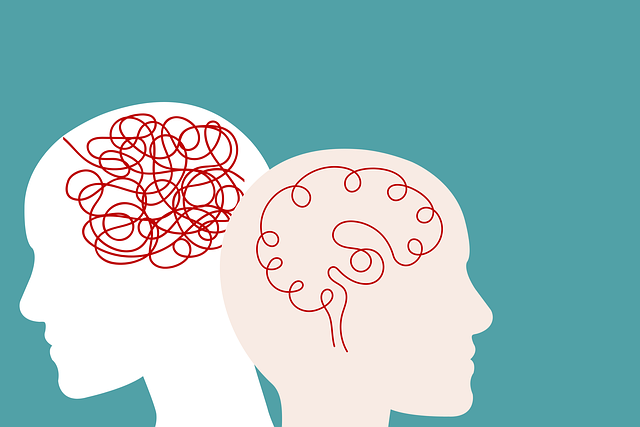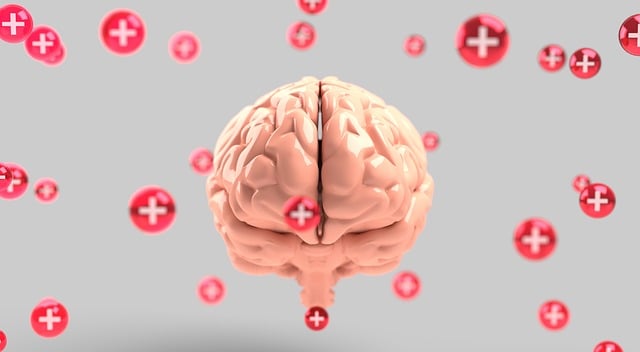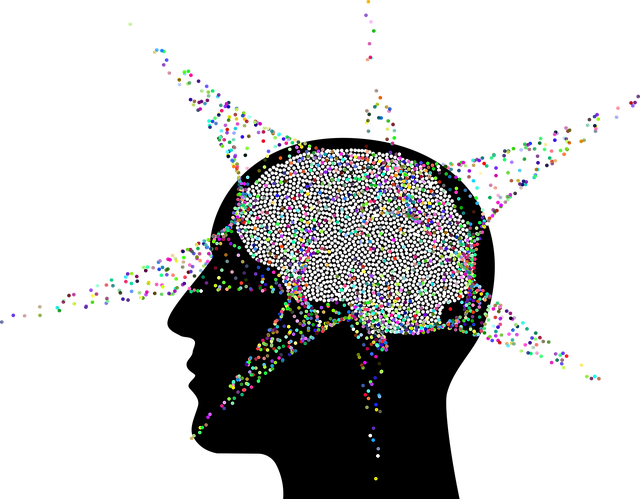Depression prevention through early identification and holistic approaches is crucial. Englewood Spiritual-Religious Issues Therapy (ESRIT) offers a unique, evidence-backed method combining spiritual practices with traditional therapy, addressing cultural diversity via training. ESRIT, coupled with lifestyle changes like nutrition and exercise, enhances mental well-being. It complements Mental Wellness Coaching Programs and crisis interventions, emphasizing sleep quality and community support for at-risk individuals in Englewood.
Depression is a prevalent and serious mental health condition, but prevention is achievable through a holistic approach. This article explores various strategies to combat depression, offering insights into understanding its subtle signs and symptoms. We delve into the therapeutic benefits of Englewood Spiritual-Religious Issues Therapy (ESRIT), emphasizing its role in managing emotional well-being. Additionally, it discusses lifestyle modifications such as nutrition, exercise, and sleep hygiene, along with the power of social connections and community engagement to foster resilience against depressive episodes.
- Understanding Depression: Recognizing the Signs and Symptoms
- The Role of Spirituality and Religion in Mental Well-being
- Exploring Englewood Spiritual-Religious Issues Therapy (ESRIT) Techniques
- Lifestyle Changes for Depression Prevention: Nutrition, Exercise, and Sleep
- Building a Support System: Social Connections and Community Engagement
Understanding Depression: Recognizing the Signs and Symptoms

Depression is a complex mental health condition that can significantly impact an individual’s daily life and overall well-being. Recognizing the signs and symptoms is the first step in prevention, as early identification allows for timely intervention. Common indicators include persistent feelings of sadness, loss of interest or pleasure in activities once enjoyed, changes in appetite and sleep patterns, fatigue, difficulty concentrating, and in severe cases, recurrent thoughts of death or suicide.
Englewood Spiritual-Religious Issues Therapy can play a pivotal role in depression prevention by providing individuals with tools to cope with emotional distress. Mindfulness Meditation, for instance, has been shown to reduce symptoms of depression and anxiety. Additionally, Healthcare Provider Cultural Competency Training ensures that professionals are equipped to offer tailored support, considering the unique cultural and religious backgrounds of their patients.
The Role of Spirituality and Religion in Mental Well-being

Englewood Spiritual-Religious Issues Therapy can play a significant role in depression prevention and overall mental well-being. Faith-based practices have been shown to offer unique benefits, including enhanced emotional regulation and a sense of purpose or meaning in life—essential factors in maintaining good mental health. Incorporating spiritual or religious activities into one’s routine can provide individuals with coping mechanisms that support Emotional Well-being Promotion Techniques, helping them navigate stressful situations without resorting to unhealthy behaviors.
This aspect of therapy is particularly crucial for those who may not respond to traditional therapeutic approaches alone. Research suggests that addressing Spiritual-Religious Issues as part of a comprehensive Mental Health Policy Analysis and Advocacy strategy can lead to improved outcomes in depression management. By embracing their spiritual or religious beliefs, individuals can find solace, strength, and community support, all of which contribute to better emotional regulation and overall mental resilience.
Exploring Englewood Spiritual-Religious Issues Therapy (ESRIT) Techniques

Englewood Spiritual-Religious Issues Therapy (ESRIT) offers a unique and often overlooked perspective on depression prevention. By integrating spiritual and religious beliefs into therapy, ESRIT helps individuals connect with their inner strength and purpose, fostering resilience against mental health challenges. This approach recognizes the profound impact that faith and spirituality can have on one’s emotional well-being, providing coping mechanisms that go beyond traditional talk therapy.
In today’s diverse society, it’s crucial for healthcare providers to undergo Cultural Competency Training to effectively deliver ESRIT services. This training equips mental health professionals with the skills to understand and respect different cultural and religious backgrounds, ensuring that every individual receives tailored support. Additionally, integrating ESRIT into existing Mental Wellness Coaching Programs can enhance overall treatment efficacy by addressing spiritual aspects of mental health, as supported by research in risk assessment for mental health professionals.
Lifestyle Changes for Depression Prevention: Nutrition, Exercise, and Sleep

Depression prevention starts with adopting healthy lifestyle changes. Nutrition plays a significant role in mental health; incorporating nutrient-rich foods like omega-3 fatty acids, folate, and vitamin D can boost mood and reduce symptoms of depression. A balanced diet, free from excessive sugar and processed foods, supports overall well-being and can be a powerful tool in the prevention and management of depression.
Regular exercise is another crucial component of preventing depressive episodes. Physical activity releases endorphins, which act as natural mood lifters, and can reduce stress hormones. Engaging in activities like walking, swimming, or yoga can provide a sense of accomplishment and promote better sleep—a critical factor for mental health. The support and guidance from Englewood Spiritual-Religious Issues Therapy, coupled with a strong Mental Wellness Podcast Series Production and active lifestyle, can serve as an effective crisis intervention and prevention strategy for those at risk of depression. Additionally, prioritizing quality sleep through consistent schedules and relaxing bedtime routines can significantly contribute to maintaining mental health and preventing depressive disorders.
Building a Support System: Social Connections and Community Engagement

Building a strong support system is an essential aspect of depression prevention strategies. Social connections and community engagement play a pivotal role in promoting emotional well-being. Engaging with like-minded individuals, whether through support groups, community events, or spiritual/religious practices, can offer a sense of belonging and provide a safe space to express feelings and seek help. These interactions encourage positive thinking and foster a supportive network that is crucial for mental health policy analysis and advocacy.
In the context of Englewood, where spiritual-religious issues may be prominent, integrating these practices into one’s routine can significantly contribute to therapy and overall mental resilience. By connecting with others who share similar beliefs or interests, individuals can find comfort, guidance, and a sense of purpose. This community aspect not only enhances emotional well-being but also empowers individuals to advocate for their mental health, ensuring they receive the necessary support and understanding from both personal networks and broader mental health policies.
Depression prevention is a multifaceted approach that incorporates spiritual practices, therapeutic techniques, lifestyle modifications, and robust support systems. By understanding the signs and symptoms of depression, leveraging the power of spirituality and religion, adopting evidence-based therapies like Englewood Spiritual-Religious Issues Therapy (ESRIT), and making positive changes in nutrition, exercise, and sleep, individuals can effectively safeguard their mental well-being. Building and maintaining strong social connections within one’s community further bolsters resilience against depressive episodes. Integrating these strategies into daily life empowers folks to navigate life’s challenges with greater balance and emotional agility.













